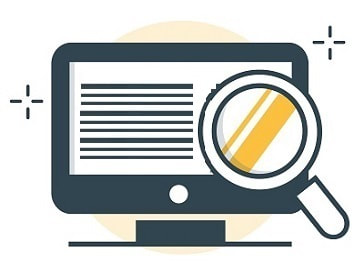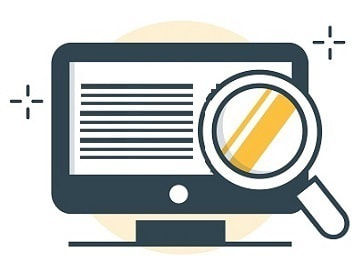Compare Business Insurance - The Definitive New Zealand Guide
Compare business insurance policies and save money. MoneyHub outlines public liability, employers' liability, business disruption, buildings insurance, professional indemnity and more.
Updated 20 July 2024
Summary of Business Insurance
- Policy costs vary widely - no business is the same, and every business has its own needs. For this reason we believe working with an experienced insurance provider is the best option to find the most suitable policy.
- Many New Zealanders under-insure their business - risks are often not obvious and incidents can become very expensive especially if legal costs are incurred.
- Most business will need public liability insurance and property insurance, but depending on your industry, other insurance options may be helpful.
- Business insurance is usually purchased through an intermediary or by going directly to an insurer. Some insurers now transact online.
- Claiming is an easy process, but hundreds of business owners lodge complaints every year about their claim being declined. To reduce the chance of this happening, it's essential to read and understand your policy as to what you are covered for, and for what you are not covered for.
Get the right insurance for your business with MoneyHub
Finding the right insurance at the right price can be difficult - your business is unique, and so is its insurance needs. Risks exist in everyday business and the right insurance cover provides much-needed protection against unforeseen costs, such as compensation and legal fees.
With the help of MoneyHub, you can understand what you need and select a policy that perfectly matches your business needs and risks, meaning you will only pay for the cover you need.
Our guide covers:
Finding the right insurance at the right price can be difficult - your business is unique, and so is its insurance needs. Risks exist in everyday business and the right insurance cover provides much-needed protection against unforeseen costs, such as compensation and legal fees.
With the help of MoneyHub, you can understand what you need and select a policy that perfectly matches your business needs and risks, meaning you will only pay for the cover you need.
Our guide covers:
- What is business insurance?
- Why take out business insurance?
- Why is business insurance important?
- How much does business insurance cost?
- Business insurance options
- What kind of businesses buy business insurance policies?
- 10 tips to save money on business insurance
- Frequently asked questions
- Making a claim
Advertising Disclaimer: MoneyHub Business Insurance is provided by MoneyHub's partner BizCover Limited, a subsidiary of BizCover Pty Ltd (ABN 68 127 707 975, AFSL 501769). MoneyHub earns a commission from BizCover when you purchase a business insurance policy through the MoneyHub website.
MoneyHub will earn a referral bonus for anyone that’s approved through some of the below links. Our research and findings are independent of any bank, credit card issuer, or product manufacturer/service provider, and have not been endorsed by any of these entities. Please see our Advertising Policy for more details about how we make money.
Related guides
MoneyHub will earn a referral bonus for anyone that’s approved through some of the below links. Our research and findings are independent of any bank, credit card issuer, or product manufacturer/service provider, and have not been endorsed by any of these entities. Please see our Advertising Policy for more details about how we make money.
Related guides
MoneyHub Founder Christopher Walsh shares his insights on navigating the complexities of Business Insurance:
|
"Navigating the world of business insurance can be as intricate and nuanced as managing a business itself. Many New Zealand business owners grapple with finding the right insurance coverage; selecting the appropriate business insurance requires a blend of astute judgment and informed decision-making.
Business insurance isn't just a formality; it's a vital shield that safeguards your hard work and investment. The ramifications of underinsuring your business can be severe. But it's not just about having any insurance; it's about having the right insurance. Whether it's public liability, professional indemnity, business interruption insurance, or something else, each uniquely protects different facets of your business. One common mistake is prioritising cost over coverage. While budget constraints are a reality for every business, scrimping on insurance can lead to disastrous outcomes - a focus on the fine print and actual coverage is crucial. Policies with numerous exclusions may initially seem economical but can leave you vulnerable when you need support. However, a one-size-fits-all approach doesn't work in business insurance. Depending on its size, nature, and industry-specific risks, each business requires tailored coverage. This bespoke approach to insurance ensures that you are neither over-insured nor under-insured. Lastly, the process of choosing business insurance should be an informed one. Compare different options, and don't hesitate to ask insurers and/or brokers tough questions. The more informed you are, the better equipped you are to make decisions that protect the interests of your business". |
Christopher Walsh
MoneyHub Founder |
What is Business Insurance?
Business insurance pays out money if your business suffers an unforeseen loss while carrying out its day-to-day business activities. Best of all, business insurance reduces uncertainty should something go wrong as the policy can pay out claims to keep the business going.
Business insurance policies vary from basic cover (used by self-employed tradesmen and professionals) to comprehensive cover for larger companies.
Business insurance policies vary from basic cover (used by self-employed tradesmen and professionals) to comprehensive cover for larger companies.
Why take out business insurance?
Insurance is all about covering risks and making sure you are not financially affected by any incident beyond your control. If your business accidentally causes millions of dollars of damages, could it afford to cover the costs? If the answer is no, there is a real risk that the business would go bankrupt. Business insurance is used to protect the business and the business owner if unforeseen events occur in the ordinary course of business.
Why is business insurance important?
Business insurance protects a business from theft, employee fraud, legal damages, legal costs and being held personally responsible for injuries or damages that occurred within the business. Business insurance policies vary; getting cover for the events that are most likely to happen is the key to never finding your business unprotected.
Beyond basic cover for business property such as vehicles and equipment, public liability insurance provides cover for the great unknown when it comes to dealing with the public and continues to be a popular insurance choice among New Zealand businesses.
Some professions, such as financial advisory, accounting, law and insurance brokerage make it compulsory to have professional indemnity insurance. In such cases, talking with the professional governing body (such as the New Zealand Law Society or Chartered Accounts New Zealand) will give an idea of what policies are available specific to the profession.
Beyond basic cover for business property such as vehicles and equipment, public liability insurance provides cover for the great unknown when it comes to dealing with the public and continues to be a popular insurance choice among New Zealand businesses.
Some professions, such as financial advisory, accounting, law and insurance brokerage make it compulsory to have professional indemnity insurance. In such cases, talking with the professional governing body (such as the New Zealand Law Society or Chartered Accounts New Zealand) will give an idea of what policies are available specific to the profession.
How much does business insurance cost?
The cost of each policy will be unique to what cover you want and a number of facts about your business, including:
- The type of business you run and the industry it operates in
- The annual turnover
- The number of employees
- The size of the premises
- The claim history of the business
Business Insurance Options
As a business owner involved with all parts of your business, knowing what business insurance you need and how much of it to buy can be hard to find out. We've put together a guide to simplify business insurance.
The type and price of insurance policy you buy will be determined by the number of employees or contractors you employ, the size of your business (turnover), the industry you're in and the specific type of work you do, the amount of cover you need, your claims history and how long you have been operating.
To help you understand the different types of business insurance, we outline the most popular policies below:
Public Liability insurance
Professional indemnity insurance
Cybersecurity insurance
Business vehicle insurance
Business interruption insurance
Statutory liability insurance
Employers’ liability insurance
Personal income protection
Employee fraud insurance
Credit risk insurance
Landlord insurance
The type and price of insurance policy you buy will be determined by the number of employees or contractors you employ, the size of your business (turnover), the industry you're in and the specific type of work you do, the amount of cover you need, your claims history and how long you have been operating.
To help you understand the different types of business insurance, we outline the most popular policies below:
Public Liability insurance
- Public liability insurance covers claims for compensation from anyone not employed by your business who suffers an injury or who owns property that is damaged because of your business.
- This could be something as simple as a visitor to your business slipping on a wet floor, resulting in a spinal injury and a claim for compensation. It can also cover more serious compensation claims, such as construction accidents.
- A public liability policy will pay not only the compensation costs but also legal costs associated with any incidents. If your business has employees, contractors or representatives who come into contact with members of the public (either at their premises or yours), asking for a public liability insurance quote is a good idea.
Professional indemnity insurance
- Professionals are engaged in selling their knowledge and expertise to their clients - this can be done in a number of ways, including advisory services, consultancy and.or producing designs. If there is an issue where a client loses money because there was a mistake in your work, there may be a claim for compensation.
- If your business offers such services where clients rely on your expertise, a professional indemnity policy can insure against the risk of compensation and associated legal costs.
Cybersecurity insurance
- Cybercrime continues to be an issue throughout New Zealand; insuring against the risks and losses is worth considering.
Business vehicle insurance
- Business vehicles insurance covers companies with one vehicle up to those with large fleets. Insurance options include cover for damage to business vehicles, liability for damage to other vehicles, costs for load recovery and salvage costs as well as some other defence and liability costs.
- If your company owns vehicles then a suitable policy can protect their value and the risk of damage they cause to other vehicles, as well as any legal liability issues that arise due to the behaviour of employees driving vehicles.
Business interruption insurance
- If you can’t work because an unforeseen event prevents you from operating your business as usual, business interruption insurance will compensate you for lost income. Such instances usually involve sudden loss or damage to your premises or equipment.
- If you are incurring additional expenses to keep your business running after an event, business interruption insurance can also cover these costs.
Statutory liability insurance
- If your business has a risk of unintentionally breaching New Zealand law, insurance can cover the costs involved in defending any alleged breach as well as fines or penalties.
Employers’ liability insurance
- Business owners need to provide cover for anyone who is injured or harmed during the course of their employment in an incident that is not covered by ACC.
- And, if you employ subcontractors, you are also responsible for their safety either on-site or while working at your premises.
- Employers' liability insurance covers the costs associated with such personal injury claims as well as the cost of defending them
- But, cover won't usually be provided if the incident is being covered by ACC, any deliberate or willful non-compliance with any Act or HSE notice or any pre-existing illnesses and injuries, among other exceptions.
Personal income protection
- This insurance cover is most popular with small or medium-sized business owners and offers cover by way of a regular income for the period that you (as the business owner) are unable to work due to an injury or illness.
- Our guide covers what you need to know to arrange quotes.
Employee fraud insurance
- Polices are available that will cover money or goods you’ve lost due to an employee's dishonesty of an employee.
Credit risk insurance
- Insurance policies can cover your business against the risk of a customer not paying their invoice.
Landlord insurance
- If your main business is property rental, we have a dedicated Landlord Insurance guide that covers everything there is to know about insuring your properties.
What kind of businesses buy business insurance policies?
Generally, business insurance is popular in the following industries:
Every business is different, and individual insurance needs vary - business insurance looks at the potential risks and provides for them. For example, a cafe beside a beach will have different business risks to that of a construction company working on a skyscraper.
- Building, trades and construction
- Sales retail and consumer products
- Hospitality
- Transport - for example; taxis, couriers and freight
- Manufacturing and engineering
- Property - for example; rentals and body corporate entities
- Home-based businesses
- Non-profit and community-based
Every business is different, and individual insurance needs vary - business insurance looks at the potential risks and provides for them. For example, a cafe beside a beach will have different business risks to that of a construction company working on a skyscraper.
10 Tips to Save Money on Business Insurance
Find out if your business is adequately covered alreadyBusiness insurance can be messy - you may have a policy for something and be unaware that another policy you hold overlaps your other cover. The most efficient way to find out is to locate your policy(s) and see what they cover and whether or not it's appropriate for your business needs as they stand today.
|
Reducing the risk of your business to lower the cost of business insuranceAdditions to a workplace such as adding a security alarm, installing CCTV, adding locks and contracting night security all help to keep a business safe. If your business has high-value assets on its premises, investing in security can not only protect your business better but also lower what you would otherwise pay for business insurance.
Educating staff and setting goals to achieve a clean health and safety record can help you reduce your business insurance premiums when it comes to employer and public liability cover. |
A proven track record can mean cheaper policiesIf you run a long established business and have not made a claim on existing business insurance, there is a reasonable expectation that you could pay relatively less for similar insurance than new businesses (with no trading history) and anyone else with a history of making claims.
|
Know that the cheapest cover isn't always bestCheapest policies can cost a lot more if they under insure your business and/or have a high excess that isn't affordable should you need to claim. Not being able to cover your costs with an insurance policy can potentially force you out of business. Before agreeing to a policy, check that it generously covers a range of incidents and has an excess you can quickly pay should you need to make a claim next week.
|
Find out any minimum business cover insurance your contracts stipulateIf your business enters into high-value contracts, there may be stipulations in the client contract for a minimum level of public liability and/or professional indemnity insurance. These stipulations must be backed up by a sufficient level of insurance otherwise you could be in breach of the contract.
|
Identify the worst-case scenario and estimate what it would costFor public liability insurance and professional indemnity insurance, picking the right level of cover for your business is critical to having the right insurance. To do this effectively, think about your business, the work you do and what could go wrong in a worst-case scenario. Once you have some ideas, think about how much that 'worst situation' would cost if you had to pay compensation. This number is what you should insure for.
|
Make sure that you are not underinsuredBeing under-insured can be disastrous for a business. If public liability only covers $500,000 and your business causes millions of dollars of damage, the shortfall could bankrupt your business. Another example is business disruption insurance - if you only insure for $50,000 of costs but know that amount of money wouldn't go far in normal operations, reassessing the insurance level is essential.
|
To accurately compare quotes, provide accurate informationBeing accurate when it comes to your business will not only get you the best value policy, it will also ensure nothing is underestimated should a claim need to be made. Prepare an inventory list of everything you need to be covered; stock, equipment, and/or business premises.
|
The higher the excess, the cheaper the policyThis is a general rule but usually stands true with business insurance. Choosing a high voluntary excess can save you money every year on the price of a policy. However, having a realistic excess that your business could easily pay is essential should disaster strike.
|
Pay for a policy for 12 months upfrontPay for your policy up front for 12 months and you'll likely pay 10-20% less right away. Insurers prefer to be paid upfront and reward their customers who make this commitment. Remember, if you cancel before the 12 months is used, the remaining months can be refunded.
|
Frequently Asked Questions
Nothing is obvious when it comes to business insurance, so we've put together a list of frequently asked questions to help find the right policy for your business.
Who do I need to provide employers' liability cover for?
Business owners need to provide cover for anyone who is injured or harmed during the course of their employment in an incident that is not covered by ACC. And if you employ subcontractors, you are also responsible for their safety either on-site or while working at your premises. Employers' liability insurance covers the costs associated with such personal injury claims as well as the cost of defending them. Business owners are exposed to claims by employees and contractors for a number of conditions, including:
- Injury caused by occupational stress
- Heart attack or stroke as the result of mental effort or mental strain arising out of, and in the course of, employment
- Disease caused by gradual process – particularly where the employer's obligation to provide a safe workplace has not been met
- Disease or infection caused by air conditioning systems or passive smoking
- Nervous shock caused by defective premises
- Bystander claims caused by witnessing a traumatic injury or fatality
How is a business insurance premium calculated?
There are many variables which factor into what your premium will be. These include how long your business has been operating, the number of employees or contractors you employ, the size of your business (turnover), the industry you're in and the specific type of work you do, the amount of cover you need and your claims history.
What is business interruption cover?
If you can’t work because an unforeseen event prevents you from operating your business as usual, business interruption insurance will compensate you for lost income. Such instances usually involve sudden loss or damage to your premises or equipment. If you are incurring additional expenses to keep your business running after an event, business interruption insurance can also cover these costs.
Can I cover my tools, business equipment and stock?
Yes; all of these are the primary focus of many business insurance policies. When insuring any business asset, it's best to cover it for its fill value, keep all receipts and any other documentation which proves ownership.
Do I need business insurance if I work from home?
Possibly. Even if you don't own business premises or employ staff, business insurance can cover expensive legal costs and lost income.
Can I claim on business insurance if I go bankrupt?
No - policies exclude claims for lost income due to bankruptcy. But, business insurance can help prevent bankruptcy by offering financial protection.
How to Claim on Your Business Insurance
In almost every case, making a claim will be an easy process. Having a business insurance provider will make it even easier, as they will be more familiar with the policy, excess level and terms and conditions. They can also be easier to deal with than your insurer, avoiding call centres and delays. To have the best experience when making a claim, follow these steps:
If your claim is rejected, appeal and complain
- If the loss arises due to a physical event, you must take all reasonable steps to prevent further loss - call the police in case of theft, burglary or vandalism and take photos of any damage. If possible, keep any damaged property for the insurer to inspect and assess the loss
- If there is a potential legal issue due to an accident, negligence or similar, contact your insurer and give the full details of what happened. The insurer will advise further on the matter.
- If you need to claim for business expenses, prepare an estimate for the costs you are incurring as a result of the event.
- Provide the details of any person who may be responsible for the damage or loss
If your claim is rejected, appeal and complain
- Your insurer should inform you, in detail, why the claim was rejected and how it falls outside your policy.
- If you disagree, jump on the phone and explain why your claim meets the T&Cs of the policy you bought.
- If the insurer still refuses to cover your claim, ask your insurer for a "letter of deadlock". This letter lays out why the insurer disagrees with your claim. Once you have the letter of deadlock, you can access the Insurance & Financial Services Ombudsman Scheme which resolves disagreements between customers and their insurers.
- Their free-of-charge service will make the final decision about your claim and order the insurer to pay out if they find in your favour.
- If your insurer isn't a member, you can complain to Financial Services Complaint Ltd who follow a similar process.
Final Thoughts - Buying Business Insurance Policy - Balancing Price and Coverage
When it comes to getting the right business insurance policy, it's a balance of price and coverage. Don't be tempted by a cheap policy with a lot of exclusions - business events cannot be predicted and a policy that covers you for the real risks of exposure is invaluable. If in doubt about anything, talk to a business insurance provider - they work with you to find the best policy to suit your situation.
Do you have experience with business insurance that you would like to share? Email the MoneyHub team and help improve the way New Zealanders buy business insurance.
When it comes to getting the right business insurance policy, it's a balance of price and coverage. Don't be tempted by a cheap policy with a lot of exclusions - business events cannot be predicted and a policy that covers you for the real risks of exposure is invaluable. If in doubt about anything, talk to a business insurance provider - they work with you to find the best policy to suit your situation.
Do you have experience with business insurance that you would like to share? Email the MoneyHub team and help improve the way New Zealanders buy business insurance.
Popular Guides:
Cash Flow Essentials:
Cash Flow Essentials:
Business Succession
- Compare Public Liability Insurance
- Compare Business Interruption Insurance
- Compare Professional Indemnity Insurance
- Business Loans
- Business Credit Cards
- Business Vehicle Loans
Cash Flow Essentials:
- Business Money-Saving Tips
- Get Debtors to Pay Overdue Invoices
- Liquidations and Receiverships
- Can't Make Payroll Guide
Cash Flow Essentials:
- Business Money-Saving Tips
- Get Debtors to Pay Overdue Invoices
- Liquidations and Receiverships
- Can't Make Payroll Guide
Business Succession
Advertising Disclaimer: MoneyHub Business Insurance is provided by MoneyHub's partner BizCover Limited, a subsidiary of BizCover Pty Ltd (ABN 68 127 707 975, AFSL 501769). MoneyHub earns a commission from BizCover when you purchase a business insurance policy through the MoneyHub website.
MoneyHub may earn a referral bonus for anyone that’s approved through some of the below links. Our research and findings are independent of any bank, credit card issuer, or product manufacturer/service provider, and have not been endorsed by any of these entities. Please see our Advertising Policy for more details about how we make money.
Due to the nature of business insurance and its complexity, we do not compare all business insurers or products in the market. We do offer any financial or insurance advice, and all content presented is general and does not take into account your objectives, financial situation or needs. You should consider whether the information is suitable for you and your personal circumstances, and before you make any decision about whether to purchase a product, you should read the PDS for that product.
For more information about the range of insurers and products compared, how the service works, and how MoneyHub and BizCover are remunerated (remembering that the service is free for you to use), read the About Us section or read BizCover’s Financial Services Guide.
MoneyHub may earn a referral bonus for anyone that’s approved through some of the below links. Our research and findings are independent of any bank, credit card issuer, or product manufacturer/service provider, and have not been endorsed by any of these entities. Please see our Advertising Policy for more details about how we make money.
Due to the nature of business insurance and its complexity, we do not compare all business insurers or products in the market. We do offer any financial or insurance advice, and all content presented is general and does not take into account your objectives, financial situation or needs. You should consider whether the information is suitable for you and your personal circumstances, and before you make any decision about whether to purchase a product, you should read the PDS for that product.
For more information about the range of insurers and products compared, how the service works, and how MoneyHub and BizCover are remunerated (remembering that the service is free for you to use), read the About Us section or read BizCover’s Financial Services Guide.



















